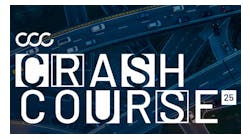In the beginning of what has today become to be the automotive industry were individuals who tinkered and experimented in building and maintaining the first “horseless carriages.” It was a hobby for some well-off individuals and a dream that was becoming reality for inventors.
For the most part, those who operated these early incantations of the automobile had to be intimately aware of the multiple requirements each vehicle required just to run half decently. Be it greasing the rockers, topping off the oil, or even getting a glass jar of petro at the pharmacy. Additionally, they had to know every little idiosyncrasy that each vehicle exhibited when being driven and how to deal with them away from the barn where the vehicle was kept and serviced.
Over the ensuing decades, with the help of Henry Ford and others, the vehicle became more mainstream; it was no longer for only the rich and tinkerers to own and drive. During this time barns gave way to garages for a place to get the nearly constant needs of the early vehicles taken care of. Tinkerers morphed into automotive mechanics.
As the popularity and possibility of owning a vehicle increased, the repair and maintenance industry also grew. Money was to be made. And in a field of no oversight or regulation, some shops started to take advantage of drivers and their dependence on the shop’s services. Thus, the need for certification that denoted whether and individual was qualified or not became apparent.
Automotive Service Excellence (ASE) certification was born of these needs in 1972. The idea was that through testing individuals could show their knowledge and understanding of how a vehicle runs. With the overall goal of giving mechanics a way to show their knowledge and skills to the owners of vehicles so that they could feel comfortable that their vehicle and safety was in good hands.
Some of you may be thinking, “Well that is all well and good, but taking and passing a test doesn’t fully prove an individual’s ability to repair today’s vehicles.”
I agree that this is a true statement. I have seen some “book smart” individuals during my years in service that have perfect scores on tests but do not even know where to start when a vehicle is right in front of them—let alone how to properly use a wrench.
Yet, even more so now than ever, having the ability to read and reason is an essential part of vehicle repair. As technology continues to advance, these skills will be needed even more. I see ASE testing as a tool not only to assess this skill but also as a tool to further refine it.
Knowing this background, now to the question of “Is ASE for me?” My personal short answer is “Yes!” I have maintained some ASE certification status for most of my 35-plus years, becoming a Master ASE Certified Technician for many of these years.
For me, taking the ASE certification tests force me to revisit the basics and to keep myself up to date on some of the more recent developments in the field. Studying for the test makes me investigate and understand some of the newer systems in vehicles today. This way I am not learning about them when the system has failed in my own vehicle—especially since I am not in a shop diagnosing and repairing vehicles much these days!
I also find that there is satisfaction in being able to pass these tests. Yes, I do need to study a bit and prepare myself for each one. Even so, I spent a good part of my life learning all the intricacies of how vehicles work, and it feels good to still prove to myself that I remember most of this information.
There are several other reasons to consider getting yourself ASE certified. Look at the job market for technicians. As you scan through the list you will see things listed such as “ASE certifications required” and “ASE certified a bonus or preferred” among other job attributes. I feel that being ASE certified shows that an individual is of a more professional quality. They take pride in their knowledge and skills.
I would ask job applicants if they had any certifications during an interview and found that their responses gave me insight into who they were as a tech. Giving me an answer such as, “I don’t need them to show that I am a good tech. I can figure anything out” said plenty about the individual and their attitude towards learning. It also showed that they were not someone I wanted to hire.
There are many shops that pay additionally based on the number of certifications a tech has. Most of the different shops I worked in as a technician would reimburse the fees related to taking and passing my ASE tests. I have always seen this as a win-win situation. Take a test every five years and get paid more!
Some OEM manufacturers such as Ford and Toyota accept ASE certifications as equivalent to passing the training that is required to work these new vehicles. What this means is that if you get hired at one of their dealerships, you have already passed some of their required courses required to work on different vehicles under warranty. This opens your skill set to more vehicles, which will mean more work. Additionally, many dealerships also base a technician’s pay on certification levels.
There are some states that accept ASE certifications for required exams that need to be passed to work as a tech in the state. Michigan will accept an ASE Master technician certification for most of the Automobile and Light Truck exams. Hawaii is another state that will also accept ASE certifications for equivalency and the ability to be an automotive technician in the state. Surprisingly, California, a state that has more laws, labels, and requirements than any other state, does not require a license or any ASE test equivalency certifications to work as a tech in the state.
During June of 2020, the U.S. Army Ordinance School announced that they would be using ASE standards and testing, along with proper experience, to give personnel a way to measure their skills and knowledge while in the service. At the same time, they feel that these individuals will be able to maintain the ever-important readiness of the Army’s wheeled vehicles, in addition to being able to use these certifications to transition into civilian life with employers being confident in each individual’s skill level and training. This certification is due to be put into place in mid-2021.
So, is ASE certification for you? That is a decision you need to make for yourself and your business. The certifications were developed for a purpose and though not the perfect solution, they do give us a way of measuring an individual’s knowledge and professionalism. And though there is no hands-on component to the testing, today’s technology does depend on a tech to be able to read, understand and make informed decisions, which further builds the value of this type of testing. This is reinforced by the fact that OEMs, states, and more see the certification as a necessary tool in measuring the abilities of those individuals that we not only trust our vehicles to, but also the life and limb of our families that travel in them.





